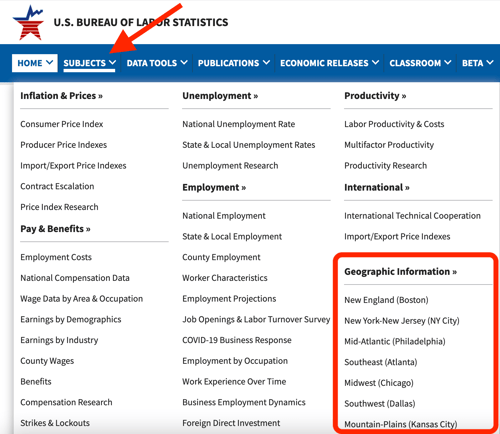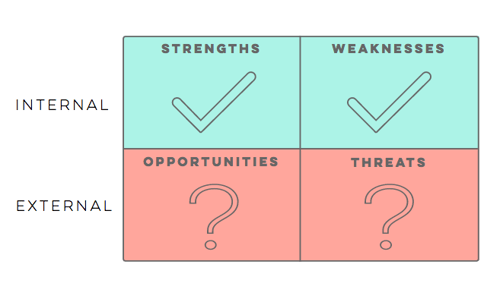Assembling a team takes more than just finding candidates with the right keywords on their resumes — company culture, soft skills, and communication styles are key to putting together the right combination of talent to help a company grow. And when it comes to an emerging field like competitive intelligence, figuring out where to look for the right hires can be a challenge.
That’s why Crayon brought George Baier IV, Director of Product Marketing at Dropbox, and Scott Frost, Product Marketing Manager at Stripe, together for a discussion about the best ways to hire and scale your CI dream team.
Here are some key takeaways that Scott and George had to share.
How do you know when it's time to hire?
The decision to hire a dedicated competitive intelligence team requires buy-in from all levels of leadership, and a clear direction for the new hires to ensure that they are adding value to the company.
Before beginning the hiring process, George encourages companies to take the time to evaluate the ways in which a CI team will add clear value to their business. By focusing on the areas that will drive the most value, you can make the most of the CI talent that you bring on board.
“As changes happen in the business, you don’t want it to be a ‘nice to know’ source of information — you want it to be critical to some aspect of what the business is driving,” George added.
How do you choose the right person?
So you’ve gotten buy-in from stakeholders, a clear mission for your impending CI team with measurable indicators of added value, and a stack of resumes on your desk. Now what?
Choosing candidates with the right experience is important — and that goes beyond strictly CI experience. What competency do you already have on your team and what expertise are you lacking? In some cases, a candidate with specific experience in sales or financial modeling might be able to provide the sort of insights that other members on your team may overlook.
Soft skills matter too. One of the main traits Scott looks for in CI hires is intellectual curiosity. Considering how research-heavy CI is, having a team that is driven by a desire to learn more and discover new ideas is critical.
“If you don’t naturally want to understand ‘why,’ and you don’t want to dig in and you don’t enjoy digging in to pursue an answer, probably this is not a job role for you,” Scott explained.
Communication is Key
When evaluating the skills needed for your competitive intelligence team, Scott and George agree that the ability to communicate, both verbally and in writing, is one of the most important competencies for your talent.
“You’re going to be negotiating constantly. People are going to come to you with questions,” George said. “Have a degree of conviction.”
As with any sort of research, CI has layers of nuance that a candidate must be able to comprehend. In particular, it’s important that your CI staff knows how to communicate the subtleties of the information they compile — that is, what they know, what they think is true, and what they suspect.
“Being very disciplined and able to segment your language and your thinking between those will make you much better at the CI piece,” Scott said.
How does CI fit into your company culture?
Each company has a specific set of values that drives its culture. Some businesses are very data-driven, focusing on crunching numbers and finding new ways to churn out higher revenue. Other companies focus on the story they have to tell and the best ways to get that narrative out to the world.
“At Dropbox, we have a very written and narrative culture,” George said. “That’s how you enroll or enlist people into your cause, and CI is no exception.”
So, a CI team must be able to present a know-it-all narrative that clearly communicates that they have all the answers — right? Not at all, Scott says.
At Stripe, for example, transparency and collaboration are prioritized — meaning that a CI team must be comfortable admitting when they don’t have all the answers. Scott emphasizes that in many cases, CI is about knowing the questions that need to be answered rather than having all the “right” information at your fingertips.
“There’s a danger in cultures that aren’t that way (transparent), where you need more accountability and need more internal checks to ensure that you have the right information,” he said.
Asking the Right Questions
Finding the right CI team begins with the interview questions you ask — and not just the ones you expect.
Soft skills usually can’t be captured on a resume, but show themselves in conversation. For example, George said that the “tell me a time when” questions can give you insight about a candidate’s emotions — are they humble? Able to navigate conflict? Accepting of constructive criticism? Being able to respond to skepticism is key with an emerging field like CI, where you might have to communicate to departments that may not have bought into the concept quite yet.
Scott, meanwhile, likes opening up a conversation about hobbies and interests to assess a candidate’s intellectual curiosity. Ice-breaker questions about, say, what podcasts a candidate listens to can give you insight into whether they’re a naturally curious person.
“Typically, people who are intellectually curious like to hear other people’s thoughts and why they think that way,” Scott said.
While evaluating these traits and soft skills isn’t a hard science, they can go a long way to determining whether a person is the right fit for the world of competitive intelligence.
Want more insight from George and Scott? Check out the full CI Live session recording outlining everything you need to know about hiring your CI dream team.
.jpg)
Related Blog Posts
Popular Posts
-
 The 8 Free Market Research Tools and Resources You Need to Know
The 8 Free Market Research Tools and Resources You Need to Know
-
 How to Create a Competitive Matrix (Step-by-Step Guide With Examples + Free Templates)
How to Create a Competitive Matrix (Step-by-Step Guide With Examples + Free Templates)
-
 6 Competitive Advantage Examples From the Real World
6 Competitive Advantage Examples From the Real World
-
 24 Questions to Consider for Your Next SWOT Analysis
24 Questions to Consider for Your Next SWOT Analysis
-
 How to Measure Product Launch Success: 12 KPIs You Should Be Tracking
How to Measure Product Launch Success: 12 KPIs You Should Be Tracking




